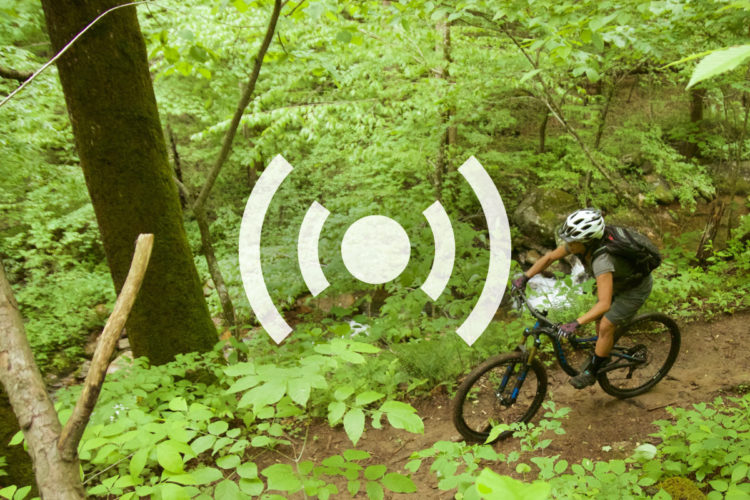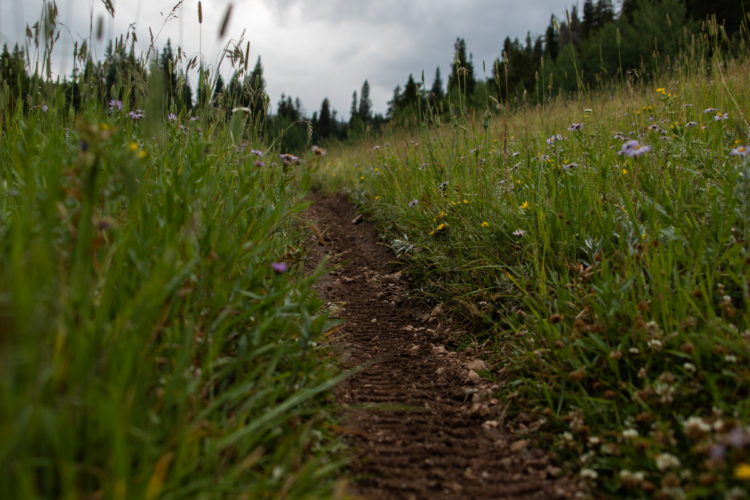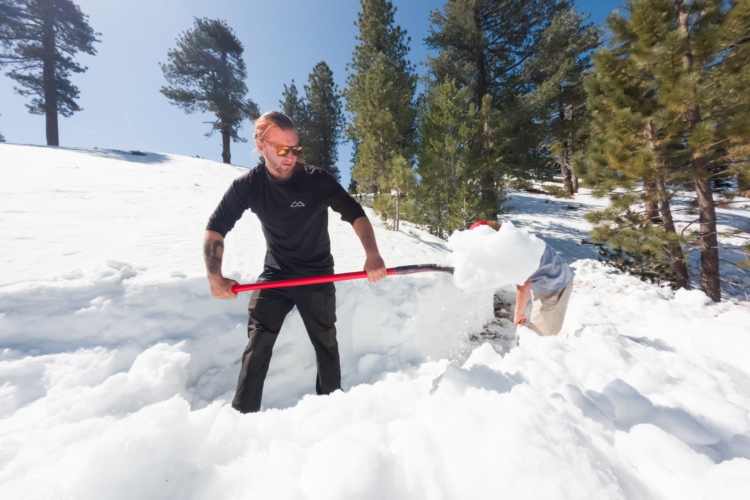
Any opinions expressed in this piece are the author’s own, and may or may not represent the opinions of Singletracks.com.
Mountain biking has recently hit the mainstream following a modern “geometry revolution,” leading to increased numbers of trail users on very capable bicycles, with varying levels of experience in etiquette and bike handling. This has created a landscape where tensions can be high and many trails are rife with littering, fall line ruts, and collapsed berms.
These factors have led to countless arguments, particularly with other trail users, over topics like “conservation” and “land access.” It may be time for us as mountain bikers to relinquish the myopic worldview of defending our personal natural playground, and instead, take steps toward a sustainable platform from which to lead the industry by example. Now is the time for mountain biking to take a step that no other genre of “extreme” outdoor sports has taken before: Using the excitement of a large, impressionable user base to support conservation for the long-term health of the land rather than solely focusing on land access issues.
[see_also id=’231342′]
Early research on the connection between outdoor recreation and environmental concern found only a weak correlation between activity and activism (Dunlap & Heffernan 1975 Journal of Rural Sociology). It goes without saying that leaps and bounds have been made within the outdoors industry to encourage environmental concern over the past four decades; however, much of this concern seems to be focused on climate change and wilderness preservation.

The mountain bike industry and its constituents are regularly concerned with changes to trail access, whether a result of land designation changes or additional complications to the term “mechanically advantaged” in the case of e-bikes. The cycling industry has thrived without inspiring environmental activism among the many individuals purchasing new bicycles every year, but maybe a dose of friendly, optional education, could improve trail centers and the environment as a whole for everyone.
[see_also id=’15176′]
When purchasing a new bicycle, whether directly online or through a brick-and-mortar store, several pieces of material are attached to the frame: A sticker encouraging the use of a helmet, another sticker with safety information, reflectors for nighttime safety, and often a plastic disc inside the cassette to prevent the chain from sucking into the wheel.
These pieces of safety information and equipment are minor nuisances for most of us to remove, but are invaluable to a new user who may be uninformed about safety or traffic laws. Would one more piece of education provided with bike sales be much of an annoyance if it offered similar benefits to our trails and overall enjoyment?

What I suggest is a small, industry standard etiquette booklet attached to the handlebars of every new mountain bike sold. This paper booklet would only need to be a few pages long, explaining both social and environmental rules of etiquette that much of the cycling community already practices. Rules like yielding to uphill traffic, avoiding skids, sticking to established trails, and waiting to ride after it rains may seem like common knowledge, but can go a long way toward making mountain bikers better stewards.
Rather than having uninformed riders learn proper etiquette through trail-side confrontations, providing this information could lead to a cleaner environment, less stress on individuals and trails, and a healthier landscape overall.
[see_also id=’46119′]
Perhaps if we as a community focus on bettering our environment and ourselves as trail stewards rather than demand trail access with little to offer in return, the larger outdoor community may notice the part we play in the great outdoors and grant us wider access to the places we love.
I would love to hear your opinions regarding how to better educate the cycling populace to take care of each other and the environment in the comments below.





















15 Comments
Mar 13, 2019
Mar 13, 2019
The problem is, many Americans have a relatively poor attitude towards nature and conservation in general. Give em a mountain bike and this attitude follows.
Anyone expecting to turn mountain biking mainstream can expect problems. Of course increasing bike is the industry's primary focus. It's a business. I dont expect that to change simply because you hand out a booklet of common sensical etiquette.
Mar 14, 2019
Apr 23, 2021
Much of the advice that's going to be most valuable to new users will be region-specific.
Some examples:
While I could see IMBA coming up with a standard template with some basics, this really seems like it would work best as a partnership between local IMBA chapters and bike shops.
Mar 13, 2019
Mar 14, 2019
Mar 14, 2019
Mar 13, 2019
I’d think a better way of providing g the info would be for sites like this to continue loudly beating the drum as well as adding a splash page to trail finding apps (MTB, Project, Trailforks, etc.) with the relevant info.
Mar 14, 2019
Mar 13, 2019
May 30, 2019
Oct 19, 2019
Mar 14, 2019
Mar 13, 2019
Mar 14, 2019